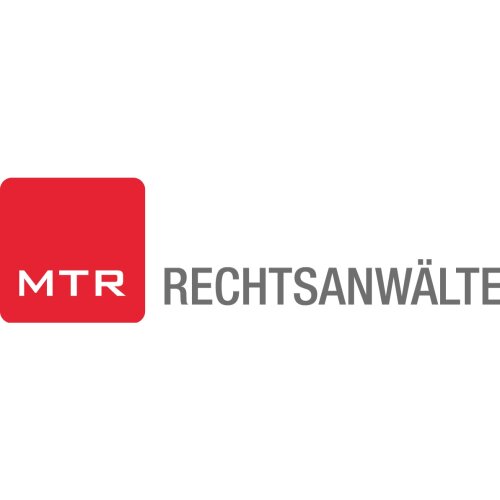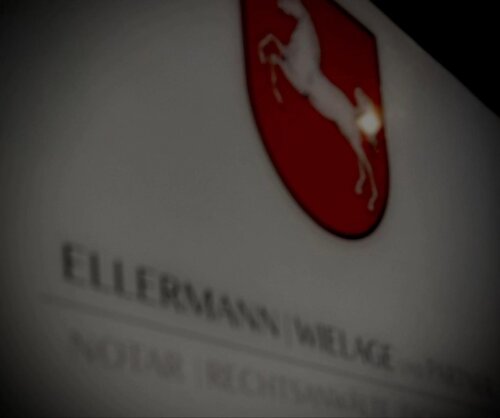Best Art & Cultural Property Law Lawyers in Berlin
Share your needs with us, get contacted by law firms.
Free. Takes 2 min.
List of the best lawyers in Berlin, Germany
About Art & Cultural Property Law in Berlin, Germany
Art & Cultural Property Law in Berlin, Germany, encompasses a broad range of legal issues associated with the creation, protection, transfer, and restitution of art and cultural objects. Berlin, recognized for its rich cultural heritage and vibrant art scene, serves as a critical hub for these legal matters. The field addresses the protection of intellectual property rights related to artworks, ownership disputes, provenance research, and regulations concerning the export and import of cultural goods. Institutions, artists, collectors, and legal practitioners navigate a complex web of international treaties, federal, and state laws, making it a dynamic area of legal practice.
Why You May Need a Lawyer
There are several situations where you might require legal assistance in Art & Cultural Property Law in Berlin. If you are an artist, you may need help with protecting intellectual property rights or negotiating contracts. Collectors and galleries may find themselves in ownership disputes or require guidance on the legalities of buying and selling artworks. Institutes or individuals involved in the cultural heritage sector might need advice on repatriation and provenance research issues. Moreover, international entities dealing with cross-border art transactions must navigate German and international cultural property laws, often necessitating expert legal counsel.
Local Laws Overview
In Berlin, like the rest of Germany, Art & Cultural Property Law is influenced by a combination of federal legislation and international agreements. Key aspects include:
- German Civil Code (Bürgerliches Gesetzbuch - BGB): Governs contracts, ownership rights, and restitution in art-related dealings.
- German Copyright Law (Urheberrechtsgesetz - UrhG): Protects the intellectual property rights of artists and creators.
- Cultural Property Protection Act (Kulturgutschutzgesetz - KGSG): Regulates the export and import of cultural goods, ensuring the protection of cultural heritage.
- International Treaties: Germany is a signatory to UNESCO and UNIDROIT conventions, influencing domestic laws on the protection and return of cultural property.
Frequently Asked Questions
What is considered cultural property in Germany?
Cultural property includes items of historical, artistic, or scientific significance, such as artworks, antiquities, manuscripts, and natural specimens, deemed worthy of preservation.
How can I verify the provenance of an artwork in Berlin?
Provenance research can be conducted by examining documentation, archives, and expert evaluations. You may engage specialists or use databases provided by museums and cultural institutions.
What are the legal implications of selling a stolen artwork?
Selling stolen art is illegal, and individuals may face criminal charges and civil lawsuits. Sales are nullified if an artwork is proven stolen, requiring its return to the rightful owner.
How do I protect my art from unauthorized reproduction in Germany?
Registering your work through copyright protection under German Copyright Law is crucial. It provides legal grounds to take action against unauthorized reproductions or adaptations.
What is the process for exporting cultural property from Germany?
Exporting cultural property requires a permit under the Cultural Property Protection Act, which assesses the cultural significance and legal status of the item.
Can I claim ownership of an artifact found in Berlin?
Under German law, certain artifacts may be claimed by the state or regulated authorities. Legal advice should be sought for any claims based on discovery rights or agreements.
Is it possible to repatriate cultural artifacts from Germany?
Yes, through bilateral agreements, international conventions, and diplomatic channels, artifacts can be repatriated to their country of origin after fulfilling legal conditions.
How does German law treat art created during the Nazi era?
Special consideration, including restitution efforts, is given to art confiscated or displaced during the Nazi era, in line with the Washington Principles on Nazi-Confiscated Art.
What role do museums play in art law cases in Berlin?
Museums can act as mediators, experts, and custodians in legal disputes, often participating in provenance research and ethical restitution discussions.
What should I do if I face an art law dispute in Berlin?
Seek expert legal advice from a lawyer specialized in art and cultural law. They can guide you through litigation or alternative dispute resolution processes.
Additional Resources
For further assistance, consider reaching out to:
- German National Committee of the International Council of Museums (ICOM): Provides resources and guidelines related to cultural property.
- Berlin State Office for the Preservation of Monuments (Landesdenkmalamt Berlin): Offers insights and regulatory advice on cultural heritage.
- Federal Office for Culture and Media (BKM): Handles significant art and cultural property-related legal frameworks.
- Provenance Research in Berlin: A resource initiative for provenance studies, especially concerning art looted during wartime.
Next Steps
If you need legal assistance, consider the following steps:
- Identify Your Needs: Clearly define the legal issue you are facing in the realm of art and cultural property law.
- Research Specialists: Look for law firms or independent lawyers in Berlin who specialize in art & cultural property law.
- Schedule Consultations: Arrange meetings to discuss your situation, ensuring the lawyer understands the nuances of your case.
- Prepare Documentation: Gather any relevant documents and information related to the legal matter at hand.
- Evaluate Options: Based on the consultations, decide on a legal strategy, whether litigation or alternative dispute resolution.
Lawzana helps you find the best lawyers and law firms in Berlin through a curated and pre-screened list of qualified legal professionals. Our platform offers rankings and detailed profiles of attorneys and law firms, allowing you to compare based on practice areas, including Art & Cultural Property Law, experience, and client feedback.
Each profile includes a description of the firm's areas of practice, client reviews, team members and partners, year of establishment, spoken languages, office locations, contact information, social media presence, and any published articles or resources. Most firms on our platform speak English and are experienced in both local and international legal matters.
Get a quote from top-rated law firms in Berlin, Germany — quickly, securely, and without unnecessary hassle.
Disclaimer:
The information provided on this page is for general informational purposes only and does not constitute legal advice. While we strive to ensure the accuracy and relevance of the content, legal information may change over time, and interpretations of the law can vary. You should always consult with a qualified legal professional for advice specific to your situation.
We disclaim all liability for actions taken or not taken based on the content of this page. If you believe any information is incorrect or outdated, please contact us, and we will review and update it where appropriate.










